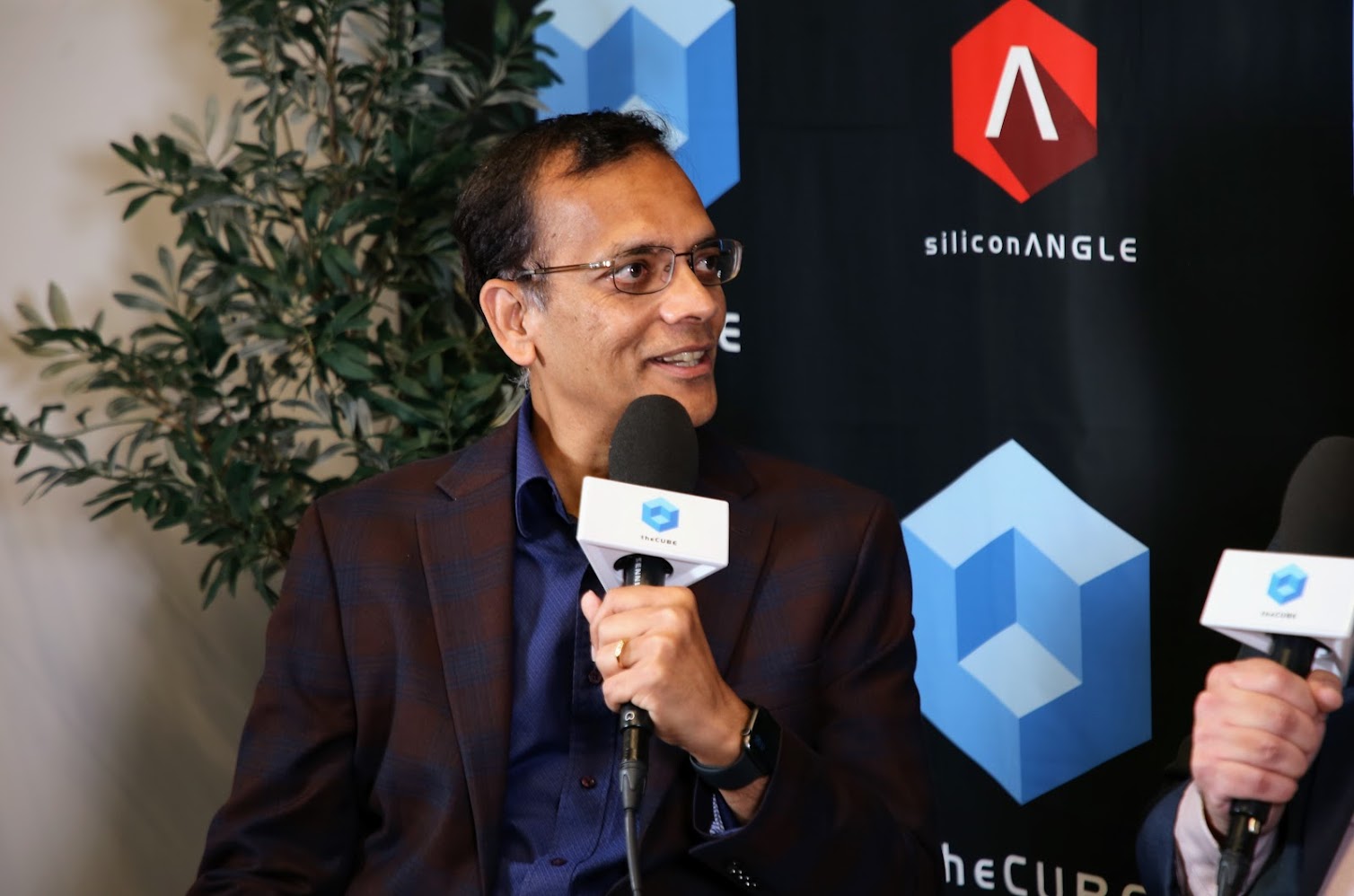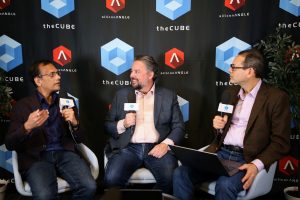 AI
AI
 AI
AI
 AI
AI
Salesforce Inc. is making a major push to deploy AI agents on its CRM platform, an initiative the company views as the next step in enterprise artificial intelligence adoption.
Building on its predictive Einstein platform for sales, service, marketing and commerce, Salesforce announced Agentforce this month as the latest chapter in the development of AI solutions.

Muralidhar Krishnaprasad, president and CTO at Salesforce, talks about AI agents with theCUBE.
“Think of it as the next evolution of our AI wave,” said Muralidhar Krishnaprasad (pictured), president and chief technology officer at Salesforce. “We had AI wave one, which was our Einstein predictive. The AI wave two is all our copilots with generative AI, and we’re now entering the age of agents.”
Krishnaprasad spoke with theCUBE Research’s Rob Strechay and George Gilbert at Dreamforce, during an exclusive broadcast on theCUBE, SiliconANGLE Media’s livestreaming studio. They discussed the key elements driving its Agentforce solution.
Agentforce is designed to augment work for employees by handling tasks across a multitude of platforms. As a powerhouse in the customer relationship management or CRM world, Salesforce is banking on AI agents to help its clients drive tangible business results.
“It’s data plus agents plus CRM plus humans,” Krishnaprasad said. “Imagine if you now rely on that agent to tell you what your next quarter results are going to be. If you’re going to rely on your agents to do your business, or even if you’re putting agents in front of your customer and the customer is asking a question, it better respond. Data becomes a very, very important ingredient in an agent’s success.”
To support a company’s data needs in the deployment of AI agents, Salesforce leverages its Data Cloud platform to channel structured and unstructured data into Agentforce. The company has also engineered a suite of tools to enable prompt generation in the building of AI agents.
“Data is fragmented, so what we did with Data Cloud was to be able to harmonize all of that data first,” Krishnaprasad said. “With this structured and unstructured data, you want to ground it with your agents. That’s where the data plus agents comes in, and this is where we give a lot of tools like Prompt Studio and others for administrators to customize it, because your company’s brand voice may be different than say my company’s brand voice.”
A key element for Agentforce involves the Atlas reasoning engine that Salesforce relies upon for evaluating what actions and data are available to generate automated tasks. Salesforce envisions a role for Atlas in anticipating the central topics that autonomous agents will need to address in the enterprise.
“You want to have a dynamic plan because you don’t know what questions the customers are going to ask; you’re clearly opening up your agent to all of them,” Krishnaprasad said. “The Atlas reasoning engine is where we use very interesting techniques called Ensemble and retrieval augmented generation, and other things along with hierarchical planning. There are interesting techniques that we are learning where you can create dynamic plans based on the questions that are coming in, the data that is relevant to that question and the feedback from that user.”
Here’s the complete video interview, part of SiliconANGLE’s and theCUBE Research’s coverage of Dreamforce 2024:
Support our mission to keep content open and free by engaging with theCUBE community. Join theCUBE’s Alumni Trust Network, where technology leaders connect, share intelligence and create opportunities.
Founded by tech visionaries John Furrier and Dave Vellante, SiliconANGLE Media has built a dynamic ecosystem of industry-leading digital media brands that reach 15+ million elite tech professionals. Our new proprietary theCUBE AI Video Cloud is breaking ground in audience interaction, leveraging theCUBEai.com neural network to help technology companies make data-driven decisions and stay at the forefront of industry conversations.